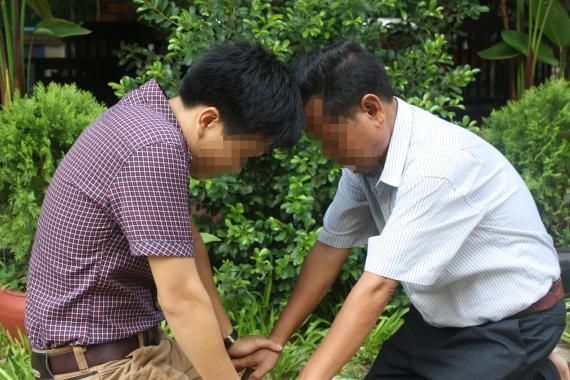
National Missionaries: Solid Answer for the Abundant Harvest
By Tom Evans
Today, as we consider Jesus’ mandate to take the gospel to the ends of the earth, we face obstacles that trace their roots back to the tower of Babel. We are challenged by the roughly 6500 different languages, plus cultural differences, geographical distance, and restrictive governments.
Many experts believe that it takes about 10,000 hours studying a language to obtain native-like proficiency. If you spent all your waking hours (16 hours) focused on mastering a language, the time invested would amount to 625 days. This is a huge investment.
Another learning curve is that of cultural differences. Each of us is born into a cultural context that has a significant impact on our view of the world. We naturally function in life based on that world-view. When people engage with other cultures, they frequently make innocent missteps that can be quite offensive and as a result create barriers. It takes significant effort to begin functioning in culturally relevant and sensitive ways.
Geographical distance is a barrier that has been overcome in significant ways through air travel. At the same time, many unreached tribes are still located in difficult to reach villages in mountains and in climates that many foreigners feel are unlivable. Those who are willing must typically uproot themselves, and relocate, often at significant expense and years of effort, in order to reach a new people group for Jesus.
The greater challenge is restrictive governments who do not allow foreigners to live in the country to do evangelism. We want Jesus to return quickly. Is there a way to speed up God’s work among the millions of unreached?
In Luke Chapter 10, we read of Jesus sending out the seventy in groups of two. He gave them a significant vision: “The harvest truly is great, but the laborers are few; therefore pray the Lord of the harvest to send out laborers into His harvest.” (Luke 10:2). With a plentiful harvest, where was Jesus’ answer to be found for more laborers?
The following verses of Luke 10 highlight the strategy of Jesus. When the teams of disciples entered a city or village, they were to look for a “person of peace.” They were to stay in the home of that individual for a period of time and not to go from house to house (see Luke 10:6-7). Evidently, the disciples were developing a leader to carry on God’s work in that community once they left. Their work was temporary and catalytic; the “person of peace” was a permanent presence.
As we apply the principles of Luke 10 to Southeast Asia, we can readily concur that there is an abundant harvest. Not only is the harvest abundant, they are also receptive. Political turmoil, oppressive governments, and extreme poverty create an atmosphere where people are searching for hope. How can we reach them?
The primary strategy ASAP Ministries has identified fits well with Jesus’ instruction to the seventy: identify national missionaries who can preach the gospel in their local context. They become the “person of peace” in their community, sharing the hope of the gospel. The national missionaries already know the main language and understand the culture. They often already live in or nearby the communities they are reaching for Jesus. ASAP partners with the local missions to identify potential national workers and then equips them through training. In addition, ASAP provides financial help through sponsorships. Even when they do not know the language of a targeted unentered tribe, they can often learn it more quickly than a foreigner. Based on this model, it is possible for God’s work to expand much more rapidly.
Win Sein is an excellent example in Myanmar. He is a church planter who moved his family to a village four days’ journey from Yangon. It is in the eastern mountains of the fairly unreached Shan State. They live in a drug-infested village, teaching the children who would not have a future if Win Sein did not help.
Most of the people are from the Lahu tribe which speaks a language that is new for him. His small knowledge of medical ministry has been used by God to save lives. Win Sein now has around 100 interests or members in seven different villages. I praise God for national missionaries!
Many years ago, when I first examined ASAP’s strategy for Southeast Asia, it made so much sense to me. My expertise is in the area of strategic church planting and developing systems to support it. The strategy of ASAP to recruit, develop, and empower national missionaries is powerful. You and I can make a difference for eternity through sponsoring national workers who speak a language we probably don’t understand, within a culture very different from our own, and in a place we likely would never go.
My family personally sponsors four national missionaries through ASAP in a closed country. Would you consider sponsoring one or more national missionaries this coming year? You will receive a profile of your church planter from ASAP. This is an added blessing in that you can pray for them specifically. What a blessing to be part of carrying the gospel to the ends of the earth!
 MEET THE AUTHOR
MEET THE AUTHOR
Tom Evans is an active supporter of ASAP Ministries, serving as our board chairman. He is the Associate Director for the North American Division Evangelism Institute at Andrews University. Previously he served as the director for church planting in the Texas Conference during which 114 churches were planted.
